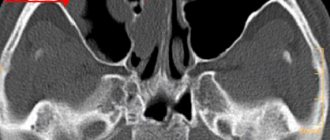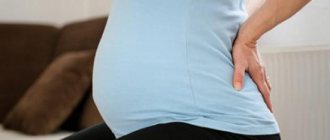Tinnitus is an auditory sensation observed in the absence of an external sound signal. In most cases, we are talking about subjective tinnitus (only the person himself can hear it), and only sometimes about objective noise (if, for example, the auditory sensation is caused by involuntary muscle vibration, then the doctor can also hear it - using a phonendoscope).
Data on the prevalence of tinnitus vary widely. This is explained precisely by the fact that tinnitus is not recorded objectively. The following experiment was conducted: people who had never complained of tinnitus before were placed in conditions of absolute silence. And 93% of those who took part in the experiment said they heard some kind of noise. On the one hand, we can simply not pay attention to the fact that we have tinnitus, since we live in a constant external sound background (for a city resident, this is a standard situation). On the other hand, in the absence of an external signal, hearing becomes sharper and begins to “read” the noises of the body itself, or the nervous system “makes up” for the missing sounds by generating a signal on its own (at the level of the nervous system this is no longer an acoustic vibration, but an electrochemical process).
How does tinnitus manifest?
Structure of the Ear Tinnitus can also be described as ringing, rustling, creaking or buzzing in the ears.
In most cases, tinnitus does not interfere with normal life. At the same time, the symptom may intensify. Doctors distinguish four degrees of tinnitus (depending on the patient’s condition):
- first degree – tinnitus does not affect a person’s well-being;
- second degree – noise causes discomfort in quiet conditions and interferes with sleep;
- third degree - discomfort from tinnitus is constantly felt, the person does not get enough sleep, the quality of life deteriorates significantly;
- fourth degree - tinnitus creates unbearable discomfort.
An important point: noise is felt in one or both ears. Noise in one ear is caused by a local cause; if there is noise in both ears at once, then the problem is most likely systemic in nature.
It is also important what other symptoms are observed along with tinnitus. For example, is tinnitus accompanied by hearing loss (hearing loss). Sometimes tinnitus is accompanied by symptoms such as headache, dizziness, and nausea.
The causes of ear congestion are:
- a) natural,
- c) pathological.
Natural causes of blocked ears include environmental influences that go away on their own and do not require medical intervention; as a rule, they do not cause pain:
- some exercises during intense physical activity;
- sudden changes in external pressure (airplane takeoff and landing, elevator rides, rides, climbing mountains, diving);
- accumulation of sulfur as a result of its increased secretion;
- weather change;
- a foreign body in the ear (in this case, you need to contact a specialist so as not to harm yourself by independent actions);
- pregnancy (congestion appears in one or both ears as a result of increased pressure, hormonal imbalance, due to obesity).
Causes of tinnitus
Tinnitus can be caused by a wide range of causes, including some serious medical conditions. First of all, tinnitus is caused by pathologies of the hearing aid. They can be classified by area of localization.
Pathologies of the inner ear:
- presbycusis – atrophic and dystrophic changes in the inner ear of an age-related nature. In this case, tinnitus usually accompanies the development of hearing loss;
- noise damage to the inner ear. The reason may be, for example, listening to loud music on headphones for a long time;
- long-term use of certain medications that are characterized by ototoxicity (adverse effects on the hearing organs);
- otosclerosis (pathological growth of bone tissue of the inner ear). With otosclerosis, noise and hearing loss are observed first in one ear, and a few months later the pathology may develop in the second ear;
- Meniere's disease (fluid accumulation in the inner ear cavity). The main symptom of the disease is dizziness;
- labyrinthitis (inflammation of the inner ear). It also manifests itself primarily as dizziness. Tinnitus is a minor symptom.
Middle ear pathologies:
- Otitis media (inflammation of the middle ear). The main symptoms are ear pain, fever, and possible purulent discharge from the ear. Ear congestion and noise are caused by the presence of fluid (such as pus) in the tympanic cavity;
- exudative otitis (accumulation of fluid in the middle ear cavity). This type of otitis media is worth highlighting separately, since, as a rule, there are no other symptoms with it, except for hearing loss and tinnitus;
- damage to the eardrum (for example, as a result of sound trauma).
Pathologies of the external ear:
- sulfur plug;
- an insect or foreign body entering the ear canal.
Other possible causes of tinnitus
Tinnitus can also be caused by:
- pathologies of the cardiovascular system
. In particular, with atherosclerosis, plaques on the walls of the arteries lead to disruption of blood flow, and turbulence (turbulence) occurs. This uneven movement of blood causes vibration, which is perceived by the hearing aid and is felt as tinnitus. The sensation of tinnitus intensifies with an increase in blood pressure, which can be persistent (hypertension), or can be caused by situational factors such as stress, alcohol or caffeine consumption;
- pathologies of the nervous system
. Noise in one ear, accompanied by hearing loss, dizziness and a sensation of “goosebumps” crawling across the face, is observed with a neuroma (tumor of the auditory nerve). Tinnitus can also be a symptom of multiple sclerosis or migraine.
Heaviness in the head, squeezing
Alexander
November 30, 2020
Good evening, lately the problem is that in the evening or sometimes even during the day, there is a feeling that my head is being squeezed in a vice, and it becomes heavy. Pain and heaviness are either localized in the occipital region, or in the temples (either in one or both at once). When measured, blood pressure shows normal values of 120/80, 130/80. The pulse is also normal, this has been happening to me for 2-3 years now, and it is either localized in the head area, or when the head lets go and there is no heaviness, there may be problems with the stomach and intestines, such intervals replace each other and can last for several months. For the last 1-2 months, the problem is in the head. When this squeezing begins, a strong feeling of anxiety also arises, sometimes I take half a tablet of phenozepam, but lately I haven’t really felt any effect from it. The psychotherapist and neurologists diagnosed anxiety = depressive disorder, hypochondriacal syndrome, neurotic disorder. For the last week I have been taking eye drops prescribed by the ophthalmologist, Ophthalmoveron, dexamethasone and cornegel. I have been taking them for 4 days because I wear SCL and recently suffered from nosopharyngitis and as a result my cornea became inflamed. I also read somewhere that Dexamethasone causes tension in the nervous system. I also have problems with sleep, I go to bed late lately and accordingly get up late, because I can’t bring myself to wake up earlier. Because of this, at the moment there are some concerns about playing sports, etc., I’m afraid of a stroke or a heart attack, etc. Although this has already happened to me, for some reason my own feelings at the moment turn out to be stronger than common sense. Over the past few years, I passed an incredibly huge list of tests, but did not really receive complete treatment, although I worked with psychotherapy for almost a year and it seemed to lead me to positive dynamics a little, but it did not last long, perhaps just the wrong specialist. Below I have attached the latest tests and diagnostic studies for the last 1-2 months. A little about myself, height 182 cm, weight 74 kg. There is C-shaped scoliosis of the 1st degree, gastritis. and as far as I understood from the last MRI, the initial signs of osteochondrosis of the cervical spine, there are also nodes in the thyroid gland, all hormones, including the tumor marker calcitonin, were tested recently, everything was normal. Also, sometimes lately I have been bothered by pain in my left knee, more precisely under it, when getting up, and tension in my left leg. I was told that this could be due to scoliosis or due to an uneven position of the pelvis. And they advised me to go to an osteopath. History of anxiety disorder, cervical spine dorsopathy, muscular tonic syndrome, hypochondriacal disorder and sometimes carcinophobia. Tell me what should I do, and how dangerous is my condition, based on the tests and diagnostic procedures that I attach below 1) MRI of the brain 2) MRI of the cervical spine 3) MRI of the veins and venous sinuses of the brain 4) Blood biochemistry 5) Ultrasound of the cervical region 6) CT ABP 7) CT of the kidneys UAC 9) OAM 10) Ultrasound of neck vessels 11) Ultrasound of the heart 12) ECG at rest 13) General stool analysis 14) Feces by PCR for HP 15) Feces for giardiasis 16) Feces for pancreatic elastase 17) FGDS 18 ) Ultrasound of the thyroid gland 19) Vitamin D - 33.4 20) Vitamin B was taken about 3 months ago and was normal 21) Steato Liver test There are also other tests, you can’t remember everything
Pain and heaviness are either localized in the occipital region, or in the temples (either in one or both at once). When measured, blood pressure shows normal values of 120/80, 130/80. The pulse is also normal, this has been happening to me for 2-3 years now, and it is either localized in the head area, or when the head lets go and there is no heaviness, there may be problems with the stomach and intestines, such intervals replace each other and can last for several months. For the last 1-2 months, the problem is in the head. When this squeezing begins, a strong feeling of anxiety also arises, sometimes I take half a tablet of phenozepam, but lately I haven’t really felt any effect from it. The psychotherapist and neurologists diagnosed anxiety = depressive disorder, hypochondriacal syndrome, neurotic disorder. For the last week I have been taking eye drops prescribed by the ophthalmologist, Ophthalmoveron, dexamethasone and cornegel. I have been taking them for 4 days because I wear SCL and recently suffered from nosopharyngitis and as a result my cornea became inflamed. I also read somewhere that Dexamethasone causes tension in the nervous system. I also have problems with sleep, I go to bed late lately and accordingly get up late, because I can’t bring myself to wake up earlier. Because of this, at the moment there are some concerns about playing sports, etc., I’m afraid of a stroke or a heart attack, etc. Although this has already happened to me, for some reason my own feelings at the moment turn out to be stronger than common sense. Over the past few years, I passed an incredibly huge list of tests, but did not really receive complete treatment, although I worked with psychotherapy for almost a year and it seemed to lead me to positive dynamics a little, but it did not last long, perhaps just the wrong specialist. Below I have attached the latest tests and diagnostic studies for the last 1-2 months. A little about myself, height 182 cm, weight 74 kg. There is C-shaped scoliosis of the 1st degree, gastritis. and as far as I understood from the last MRI, the initial signs of osteochondrosis of the cervical spine, there are also nodes in the thyroid gland, all hormones, including the tumor marker calcitonin, were tested recently, everything was normal. Also, sometimes lately I have been bothered by pain in my left knee, more precisely under it, when getting up, and tension in my left leg. I was told that this could be due to scoliosis or due to an uneven position of the pelvis. And they advised me to go to an osteopath. History of anxiety disorder, cervical spine dorsopathy, muscular tonic syndrome, hypochondriacal disorder and sometimes carcinophobia. Tell me what should I do, and how dangerous is my condition, based on the tests and diagnostic procedures that I attach below 1) MRI of the brain 2) MRI of the cervical spine 3) MRI of the veins and venous sinuses of the brain 4) Blood biochemistry 5) Ultrasound of the cervical region 6) CT ABP 7) CT of the kidneys UAC 9) OAM 10) Ultrasound of neck vessels 11) Ultrasound of the heart 12) ECG at rest 13) General stool analysis 14) Feces by PCR for HP 15) Feces for giardiasis 16) Feces for pancreatic elastase 17) FGDS 18 ) Ultrasound of the thyroid gland 19) Vitamin D - 33.4 20) Vitamin B was taken about 3 months ago and was normal 21) Steato Liver test There are also other tests, you can’t remember everything
The question is closed
voltage
basis of analysis
mri vein
When should you see a doctor if you have tinnitus?
If you begin to hear tinnitus, that is, if it appears and does not go away, you need to see a doctor and find out its cause in order to exclude the development of the most dangerous diseases.
You should definitely consult a doctor if you experience the following along with tinnitus:
- hearing loss;
- neurological symptoms (dizziness, loss of coordination, nausea, vomiting);
- severe headache or pain in the heart area.
You should also see a doctor if the intensity of the noise increases (if the tinnitus is causing a deterioration in your quality of life).
What to do if your ear is stuffy but doesn’t hurt
It happens that the ears become blocked after flying on an airplane, or when quickly ascending to a height in an elevator, but there is no more pain or discomfort, the person is basically healthy, then the following actions will help:
- pinch your nose with your fingers, hold your breath, exhale (do not unclench your fingers);
- yawn with your mouth wide open;
- Drink a glass of water slowly, in small sips;
- chew chewing candy, gum, or perform active (wide) chewing movements with the jaws;
- inflate a rubber ball or blow into a narrow tube.
These simple steps will help you cope with ear congestion in the mountains, on an airplane (difference in atmospheric pressure) and in other similar situations.
Whether your left ear or right is blocked, it doesn’t matter for subsequent actions.
Treatment for tinnitus
Treatment for tinnitus involves identifying and treating the underlying condition. Unfortunately, some pathological changes that cause tinnitus are irreversible (such as age-related changes). In some cases, eliminating the cause of tinnitus is quite simple (for example, the doctor will remove the wax plug immediately). In other cases, serious examination and medication may be required.
The sooner you see a doctor, the greater the likelihood of restoring your hearing acuity and getting rid of tinnitus.
What to do if your ears are blocked after ear cleaning
There is a common belief that you can use a cotton swab to remove accumulated wax. The key word is “cotton”: cotton wool is soft, delicate, and therefore a cotton swab is suitable for the cleaning procedure.
But not everyone knows that excess wax accumulates at the beginning of the ear canal and can be removed with an ordinary soft cotton swab. To do this, you do not need to penetrate far into the ear. A cotton swab, on the contrary, moves the wax into the ear canal, where a plug of wax can form.
A similar situation can happen if you use a match, a hairpin, or a stick for cleaning, which is often done. All these objects can injure the skin of the ear canal, and later an inflammatory process will begin at the site of the injury.
If after the cleaning procedure your hearing has decreased, you have become partially deaf, or you have an unpleasant feeling of congestion, then perhaps there is a blockage and you need to see a doctor for advice. The plug is removed quickly and painlessly.
Increased secretion of sulfur glands can also cause a plug in the ear.
Earwax can be removed at home if you know how to do it correctly without aggravating the situation.
Removing wax plug at home
Cork differs from simply excess sulfur in that it becomes a thick viscous mass, or even solid in consistency.
- to soften wax, drip hydrogen peroxide (2-3 drops) into the ear, cover the ear with cotton wool or a cloth for several minutes;
- dissolve potassium permanganate in water that is warm to the touch (slightly pink), draw into a large syringe without a needle (sterile);
- inject the solution, trying to direct the stream in different directions of the ear canal, wait for the water to flow out;
- repeat the procedure 2-3 times, but if the cork is old, then washing it out will require many times more manipulations - 20-30.
The sulfur should come out if everything is done carefully and correctly. You can notice this by improving your hearing.
Causes of ear congestion due to a cold:
- when you have a runny nose, the nasal mucosa swells, this can cause narrowing or blockage of the Eustachian tube, which can subsequently lead to inflammation of the middle ear;
- a similar situation occurs with inflammatory processes in the throat;
- Blowing your nose incorrectly leads to mucus being thrown into the ear (you need to blow your nose in each nostril separately), which can cause inflammation.
Headache, nausea, ear pain, fever indicate that the inflammatory process has already begun. In these cases, you cannot carry out treatment yourself - this can lead to impaired or complete hearing loss.
You should immediately contact an ENT doctor and receive qualified treatment!
If this is a temporary physiological cause, then when the underlying disease is cured, it should go away.
At home, with ear congestion and a cold, the following will help:
- massage of the nose and ear area;
- exercises to equalize the pressure between the middle ear and the Eustachian tube (active chewing movements, yawning, inflating rubber balloons, blowing through a narrow tube);
- hot baths with mustard for the feet (afterwards put on warm socks);
- impact on biologically active points of the foot: pour dry mustard into socks and put them on at night.
- It is undesirable to use compresses or drops without consulting a specialist, because incorrect actions can only cause harm and aggravate the course of the disease.










